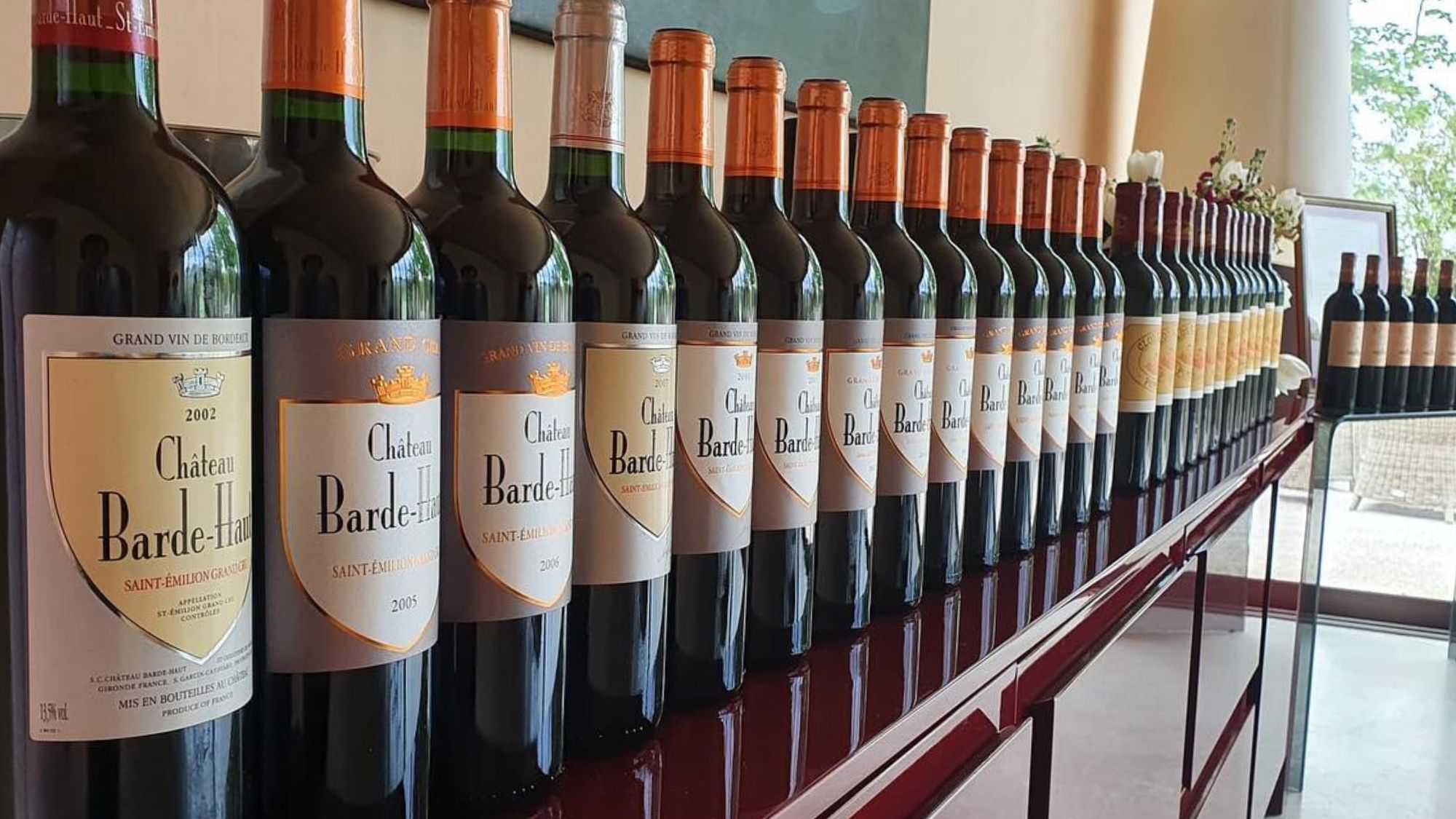AMA Vertical Tasting
Clos l’Église, Château Barde-Haut, Poesia
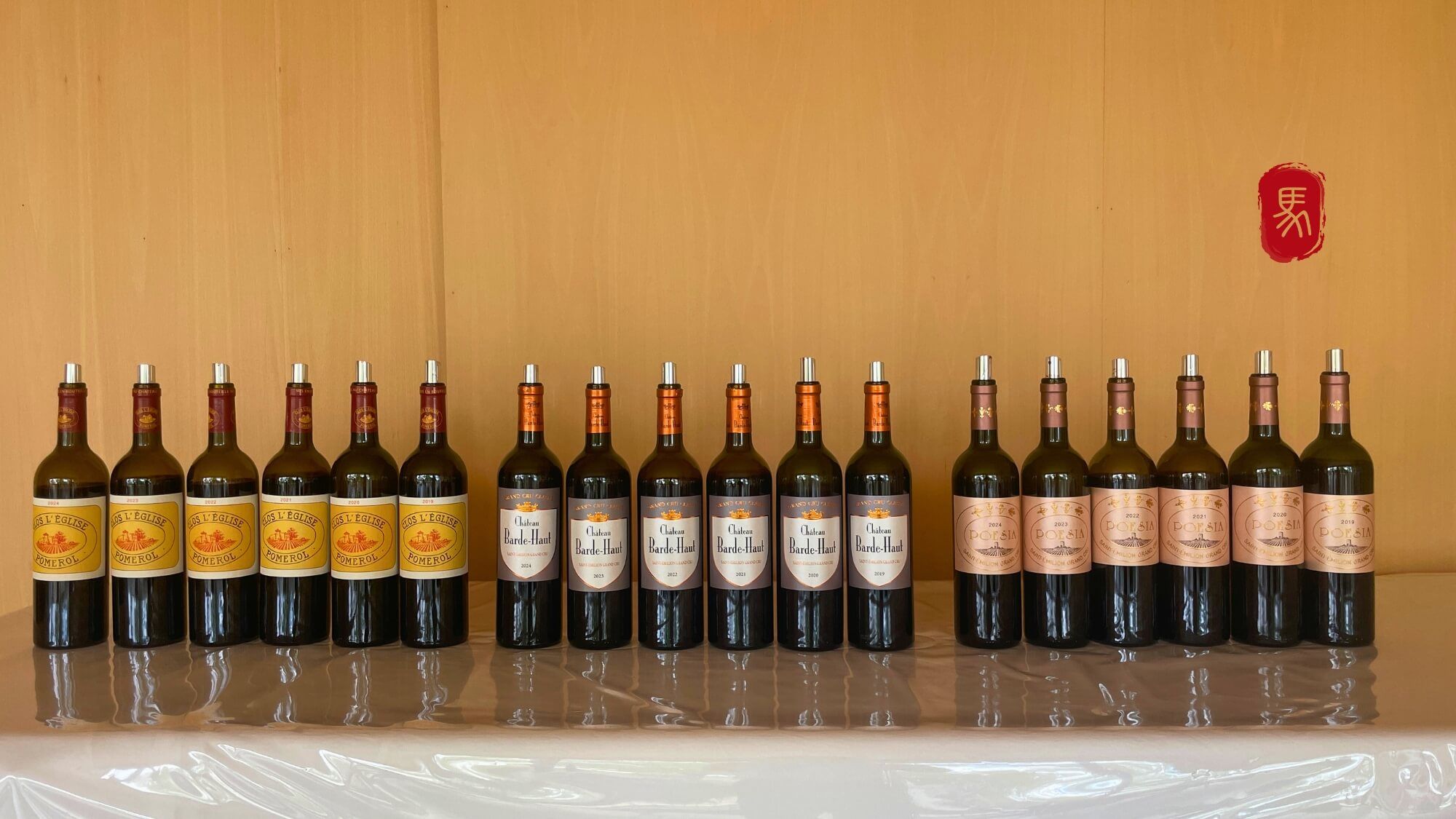
One day in 1997, Hélène, then about to graduate from a prestigious hospitality school, welcomed a rather special visitor. Tall and unmistakably Bordeaux-born, the young man had already begun managing his family’s vineyard. His name was Patrice.
I imagine that on that first afternoon encounter, Patrice was already drawn to Hélène’s warmth and vivacity, just as Hélène must have been captivated by this young man so consumed with his passion for wine. Yet neither of them could have foreseen how this serendipitous meeting would quietly blossom in the years to come. They would marry, and together grow into the stewards of five wine estates spanning France and Argentina.
Patrice was born into the legendary Lévêque family of Bordeaux, known not only for their ownership of Château Chantegrive but also for their deep roots in the world of wine brokerage. Patrice would often joke that he had no interest in classroom learning as a child; true joy for him was found working among the vines. Only in the vineyard, he would say, did life feel meaningful. It was no surprise, then, that as early as 1985, he threw himself wholeheartedly into the family estate and devoted himself to the craft of winemaking.
Hélène’s path could not have been more different. She came from a family of skiers and had little connection to wine—until 1991, when her family moved to Bordeaux, and she began to form a bond with this new land. Her mother, Sylviane Garcin Cathiard, was a celebrated figure in both French sports and business. A former Olympic skier, she represented France at the 1968 Winter Games in Grenoble. Sylviane’s brother, Daniel Cathiard—Hélène’s uncle—is now the owner of Château Smith Haut Lafitte and also once won Olympic gold for France. The siblings would later go on to co-found the iconic sports retail chain Go Sport, achieving remarkable success in the business world.
After selling her shares in Go Sport, Sylviane chose to start anew in Bordeaux. In 1991, she acquired Château Haut-Bergey in the Pessac-Léognan appellation (a biodynamic estate with modest terroir but commendable quality, which I discussed in detail in an earlier tasting article). Then in 1997, she purchased the distinguished estate Clos l’Église, perched on the highlands of Pomerol.
At the time, her eldest daughter Hélène was studying at the renowned Institut Paul Bocuse. Faced with the new chapter in the family’s wine journey, she made the resolute decision to return home and shoulder the responsibilities entrusted to her. It marked the beginning of her own brilliant life in wine.

Looking back on the moment Hélène and Patrice first met, one can’t help but feel that fate had already written their story in the quiet language of destiny.
The first time I met Hélène, I was instantly struck by her fiery, exuberant spirit. She acts with decisiveness and confidence, every gesture imbued with an undeniable sense of purpose. Patrice, by contrast, left an entirely different impression. He struck me as the archetypal vigneron—restless, meticulous, and endlessly dedicated. Every time I visited the estate, I’d find him behind the wheel of a tractor, working the vines, or buried deep in the cellar, hard at work. Even when everything was in order, he couldn’t stay still: one moment he’d be tidying up equipment, the next he’d be fixing a machine. It was as if he had a boundless reservoir of energy.
Together, they form a perfectly balanced partnership. Patrice lives for the land—his life’s calling is to work his own vineyard. Hélène, gifted in communication and brimming with generosity, would go on to carry their shared creations across the globe over the next two to three decades, forging deep connections with wine lovers around the world.
As their journey progressed, they acquired Château Barde-Haut in 2000 and, by 2012, had successfully returned it to the prestigious ranks of the Saint-Émilion Grands Crus Classés. Three years later, they purchased a 10-hectare vineyard on the limestone plateau of eastern Saint-Émilion, a site blessed with exceptional terroir. They gave it a name full of poetry: Poesia.
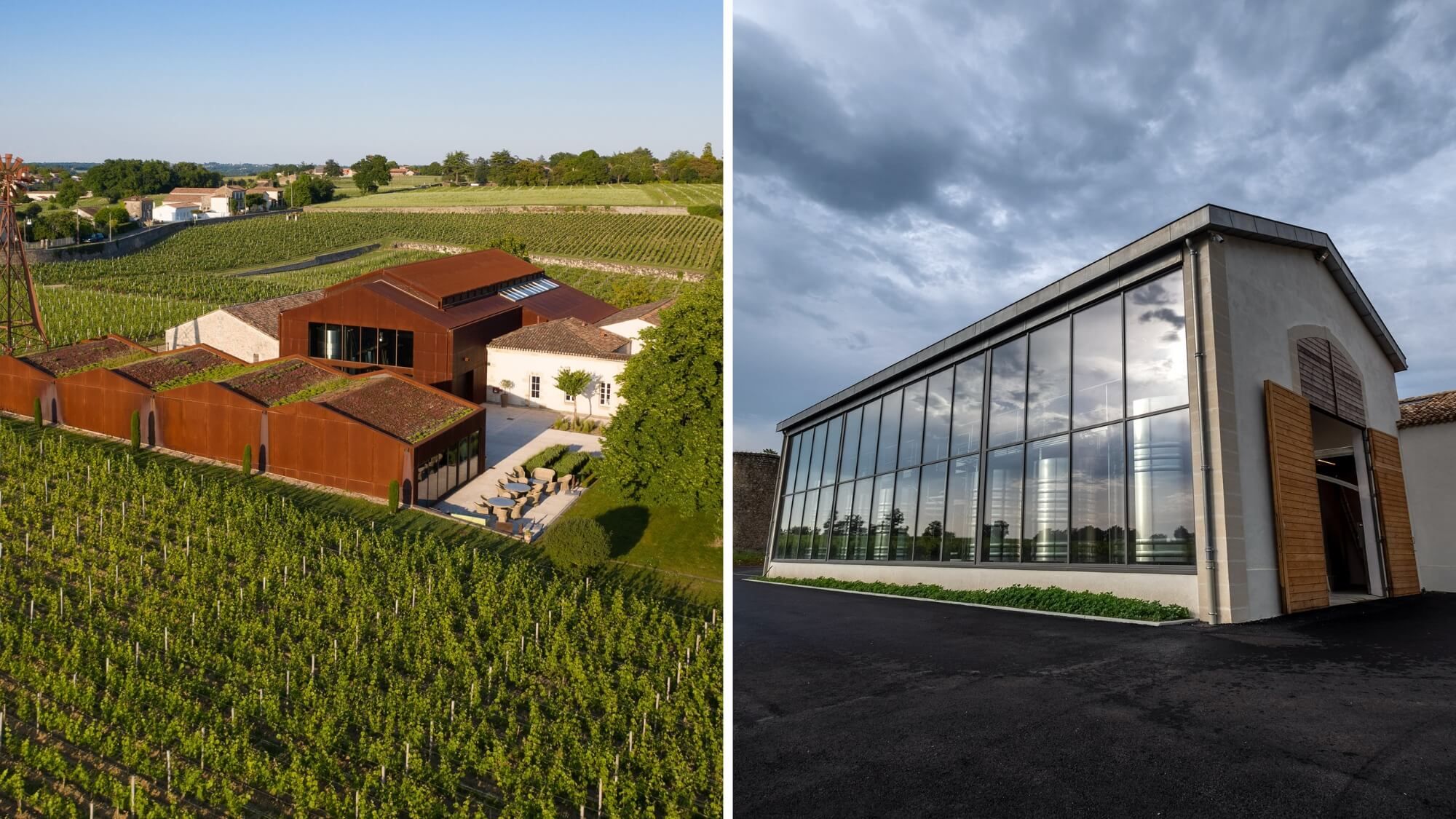
This vertical tasting focuses on these three estates under their care. In the pages that follow, I will share my personal reflections on each of them.
Clos l’Église: Leading Force of Pomerol’s Opulent Style
This boutique estate, a mere 5.89 hectares in size, is Hélène’s treasured bijou, nestled atop one of the finest plots in Pomerol. Its surface layer of gravel lies over a bed of clay—a combination that creates an ideal terroir for Merlot, awakening its inner fire while forging the kind of metallic backbone that Merlot producers around the world can only dream of.
In my tasting experience, Clos l’Église has always painted a picture of voluptuous richness. Its black fruit, seemingly wrapped in a soft layer of cream, exudes an irresistible ripeness and a delicate hint of sweetness—a textbook expression of Pomerol’s full-bodied style. It shines particularly bright in warm vintages, with 2020 and 2016 standing as its crowning achievements.
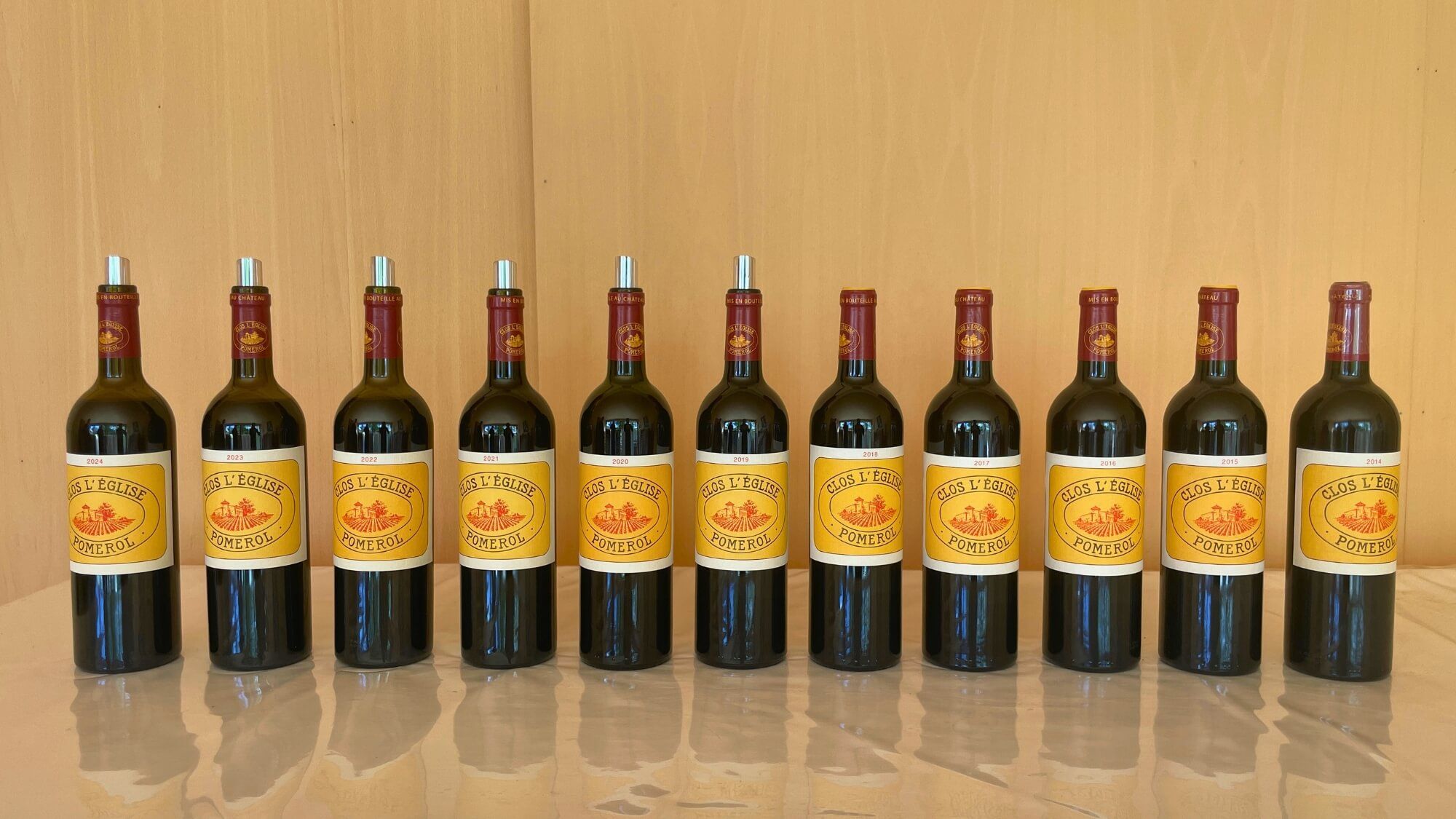
The history of Clos l’Église stretches back several centuries. Over time, changes in inheritance led to the original estate being divided in two: one half became Clos l’Église (under the Rouchut family), while the other became Clos l’Église-Clinet (owned by the Mauléon family).
In recent years, Hélène and Patrice have introduced a series of systematic upgrades to the estate. They’ve increased the proportion of Cabernet Franc, all planted through massale selection. In the winery, they replaced the old large oak vats with smaller, dual-layer stainless steel fermenters, incorporating cutting-edge technology equipped with automated pump-over systems. These technical advancements have significantly improved the precision and finesse of the wines—one of the key reasons Clos l’Église has seen a steady rise in quality since 2015.
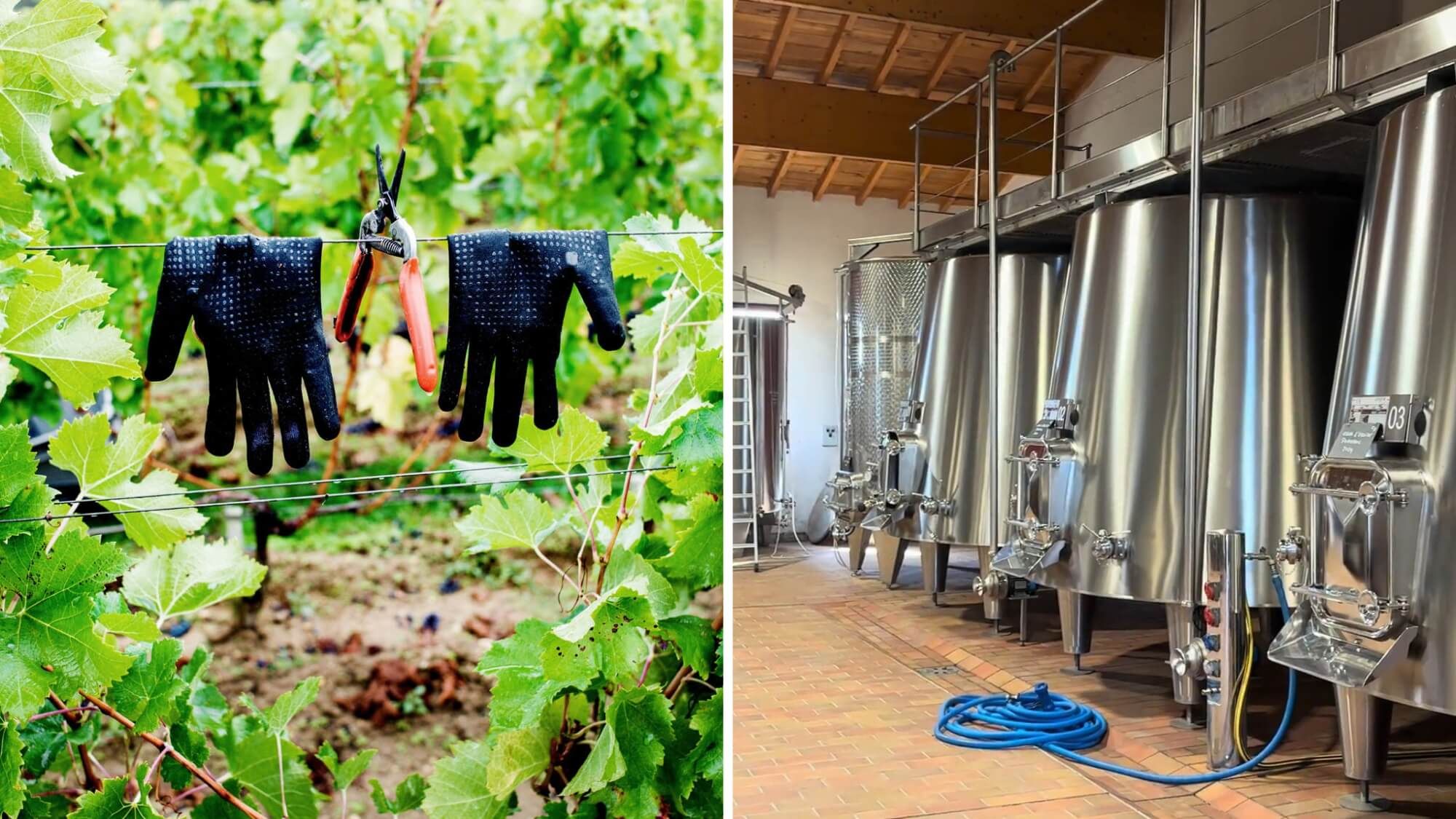
Château Barde-Haut: A Bold Poem Etched in Limestone
Château Barde-Haut enjoys an equally exceptional terroir, perched atop the clay-limestone plateau of Saint-Émilion, with a notably high proportion of clay in the soil. Wines from this site tend to be more powerful in body and deeper in tannin. The key to successful winemaking here lies in mastering the precise timing and intensity of extraction.
In my experience, Château Barde-Haut produces some of the most concentrated and profound wines of the Saint-Émilion appellation. Thanks to its naturally low pH, it consistently reveals a complex profile – bright, energetic, and tinged with a delicate “sweetness”—like a bold poem carved into the limestone heights.
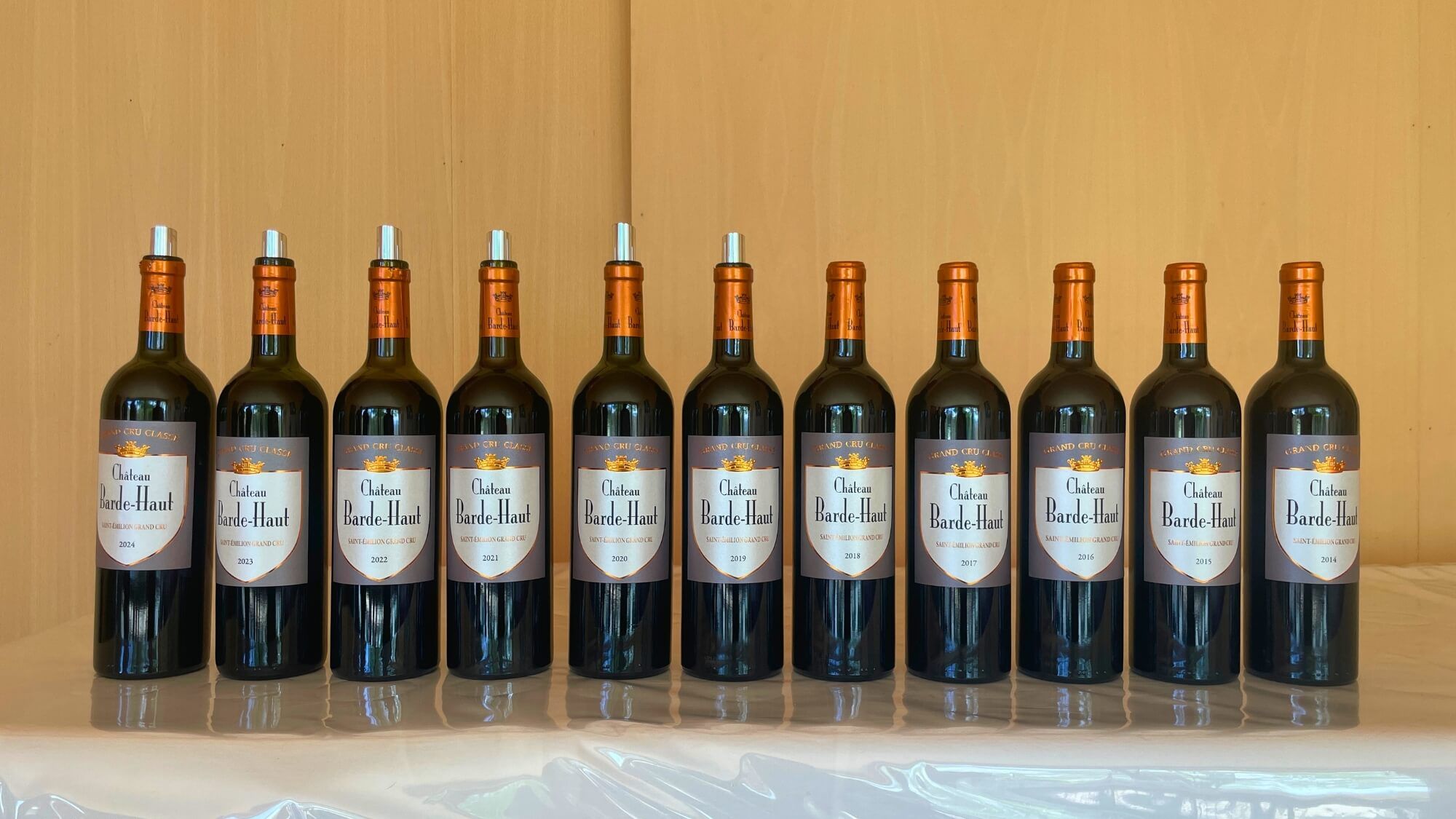
Since its acquisition by the Garcin-Lévêque family in 2000, the estate has undergone extensive renovation, evolving into a winery that blends modernity with environmental consciousness. The 16.89-hectare vineyard unfolds like a natural amphitheater, facing south and overlooking the Dordogne Valley – a true “sunlit ring” in every sense.
What makes Château Barde-Haut even more special is that it is not just a winery, but also home to Hélène and Patrice. Every day, they step straight from their front door into the vines, and emerge from the cellar already back at home. You might think that such proximity between work and life would afford them more time to rest – but not Patrice. He never lets himself slow down. Every spare minute is reinvested into the vineyard. In Bordeaux, it is rare to find a château owner so physically involved, so completely intertwined with the vines he stewards.

Château Poesia: Born For Pure and Unfiltered Expression
Compared with the richness of Clos l’Église and the intensity of Château Barde-Haut, Château Poesia reveals a more restrained and introspective style. It does not seek bold expression, but rather embraces a quiet aesthetic – reflected in both its fruit profile and its winemaking philosophy.
From its vantage point nearly 100 meters above sea level, the estate commands a sweeping view of the Dordogne Valley. The soil here is composed mainly of shallow clay, with limestone bedrock lying just beneath the surface. This forces the vines to drive their roots deep into the earth, tapping into coolness and nutrients below – resulting in a purer, more focused expression of terroir.

Thanks to its altitude and the slow-ripening nature of the site, the wine maintains precision and purity even in the hottest vintages. It offers vibrant, crystalline fruit aromas and a lively, well-defined acidity. With 30% Cabernet Franc in the blend, there is often a layer of aged Pu-erh tea calmness, accented by the cool clarity of rosemary. This is a high-grade wine from the last limestone plateau on the eastern edge of Saint-Émilion – one not to be missed. The standout vintages are 2020, 2019, and 2016.
A Common Thread Among the Three Estates
Though each of the three estates has its own distinct personality, if I had to name a common thread that runs through them all, it would be the unmistakable scent of black truffle that emerges with age.
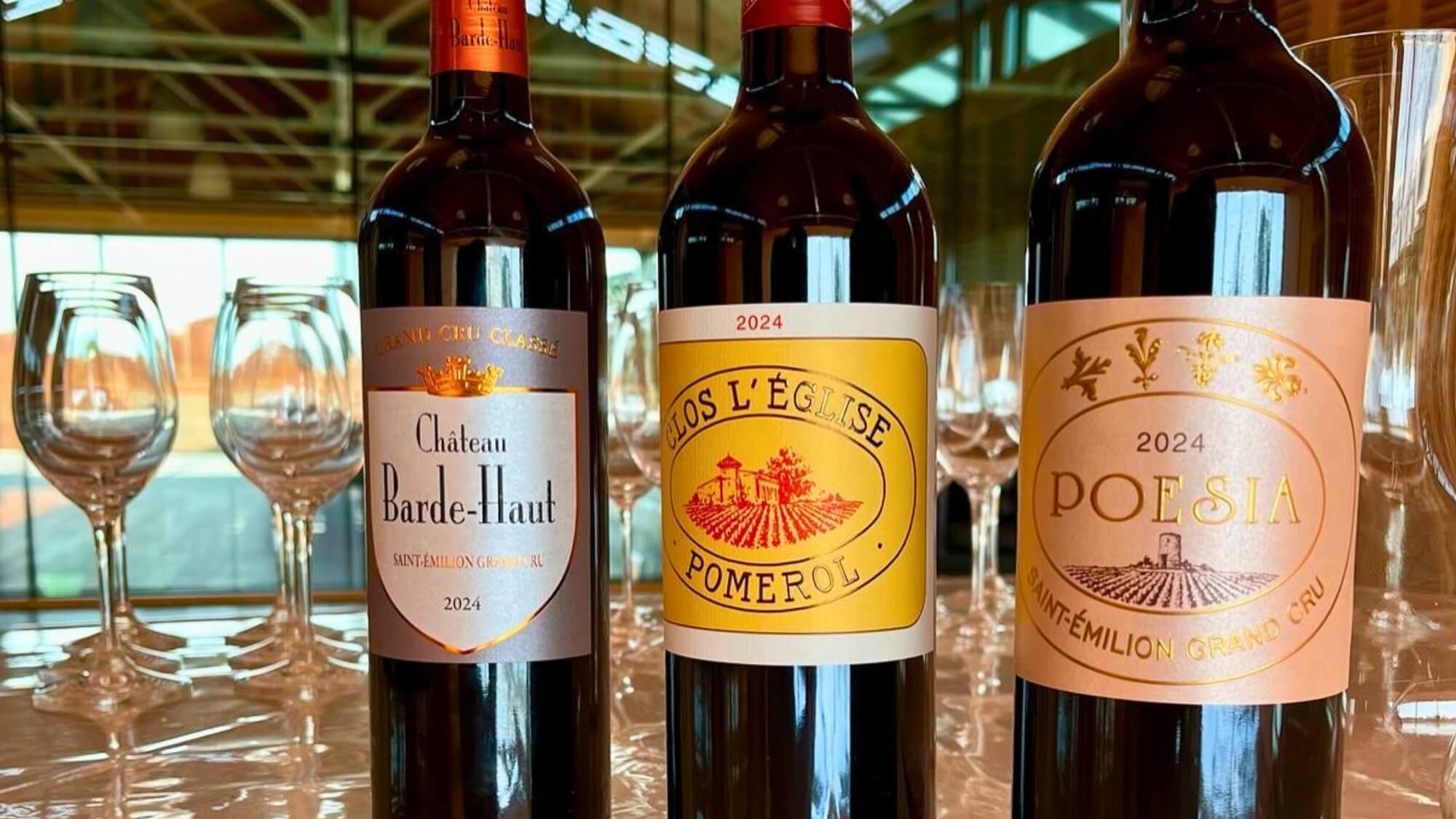
Château Poesia reveals this alluring black truffle nuance early on in vintages such as 2014, 2016, 2018, and 2020. Château Barde-Haut displays it as well in 2009, 2019, and 2020. But it is Clos l’Église that shows this signature most consistently – nearly every vintage develops a captivating truffle aroma over time. It has, in many ways, become a hallmark of the Garcin-Lévêque family’s finest wines.
In speaking with Patrice, I learned that over the years, they have worked with several renowned oenologists—Michel Rolland from 1998 to 2001, followed by Dr. Alain Reynaud until 2014, and more recently, Thomas Duclos. But over time, Patrice came to a quiet realization: only he could truly feel the heartbeat of his land and his vines. He no longer wished for the wines to be shaped by any particular “school” of winemaking, but rather to reflect, with honesty and clarity, the vision he and Hélène hold in their hearts.
Their son Louis, born in 2002, has grown up alongside the vines – watching the seasons shift, working between vineyard and cellar, and witnessing the quiet transformation of the estates. Now officially part of the family business, he is steadily gaining experience in all aspects of winemaking and estate management. As the next generation to carry the torch, Louis is already carving his own path, bringing his pace and perspective to the family’s enduring pursuit of terroir and excellence.
And that wraps up today’s story.
Until our next tasting, cheers!
